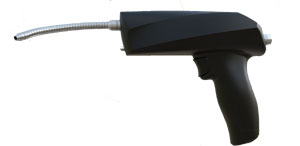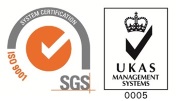Leak Testing: Helium Leak Testing - Sniffing
Explore the Leak Testing Section
Leak Testing is used to ensure quality, tested and proven parts are supplied into the market. The use of leak testing equipment eliminates failures in the field.
Explore this section to find out more about the how TQC can help you with your leak testing requirements
- Overview
- Air Decay
- Helium
- Other Test Methods
- Leak Testing Services
- Standard Equipment
- Case Studies
- Automotive Brake Leak and Flow Testing
- Automotive Bedplate Leak Test Machine
- Battery Tray Leak Test Machine
- Chilled Beam Leak Test
- Flexible Leak Test Facility
- Fuel Tank Leak Testing
- Helium Leak Test Bench
- Helium Leak Testing of Automotive Fuel Pipes
- High Pressure Audit Leak Testing System with Datalogging
- High Speed Leak Testing of Pipe Fittings using Air and Helium
- High Speed Leak Testing of Plastic Vial for the Medical Industry
- Leak Test Facility for Water Valves
- Leak Test Cell with Robotic Handling
- Casting Leak Testing of Engine Blocks
- Medical Filter Leak Test Machine
- Medical Showerhead Leak Test Machine
- Plastic Fuel Rail Leak and Burst Test Machine
- Plastic Sump Pipe Leak Test and Assembly
- Small Medical Device Leak Test Machine
- Twin Station Leak Test Machine for Oils Sumps
- V6 Cylinder Head Leak Test Machine
- V6 Engine Leak Test Machine
- V8 Cylinder Head Leak Test Machine
- V8 Engine Block Leak Test Machine
- Valve Block Leak Test Machine
- Vauxhall Leak Test Machine
- Weapon Leak Test Machine
Helium sniffing is a method of leak detection that uses helium as a tracer gas in combination with instrumentation that can detect presence of helium in the environment and more specifically an increase in helium due to a leaking part.
Generally sniffer leak detection is used to locate leaks in parts or systems so that they can be identified and where possible repaired. This test method is not quantitative as it is the skill of the operator that can determine whether a leak is found.
Sniffing is indicative at a level of 1x10-5 atm.mm3/sec but care should be taken because as soon as helium exits the leak path it dilutes, especially where there is significant air movement.
The principle of helium sniffing leak detection is to elevate the internal pressure within a part to above ambient. Having helium within the internal volume a sniffer probe is used to investigate the most likely source of where a leak might exit the part (e.g. welded joints).
If there is a Mass Spectrometer available for sniffing, a simple tube with hand grip and restriction can be used for sniffing. An alternative is to use a dedicated device such as the Nolek SniffIT, this is a handheld portable unit with an integral fan and sensor. This dedicated instrument is a lower cost option to that of a mass spectrometer.
Typical Helium Sniffing Procedure –
- Seal any ports or openings on the test part, leaving a single port for filling / charging with helium
- Evacuate the internal volume of the part (if possible)
- Fill / charge the internal volume with helium. Only a small pressure is required e.g. 2-3 psig.
- Scan the test part checking for leakage
- Vent the internal volume to an area outside the test area to avoid helium build up and comtamination
- Remove and fixturing / connectors
Examples of previous helium leak testing equipment supplied by TQC are shown in our case studies
To find out more about how we can help you with your helium leak testing requirements:
We build all machines in-house, applying our 25+ years experience in specialised test and automated handling machines to the engineering projects we undertake. We offer customer support, backup and service call-out for all projects, whatever the size.
To find out more about how we can help you with your leak testing requirements:
We build all machines in-house, applying our 25+ years experience in specialised test and automated handling machines experience to the engineering projects we undertake. We offer customer support, backup and service call-out for all projects, whatever the size.
Get in touch with us to discuss your requirements and we will be happy to offer our professional advice and visit you at your site.
- Contact us online
- Email us or call us on 0115 950 3561
